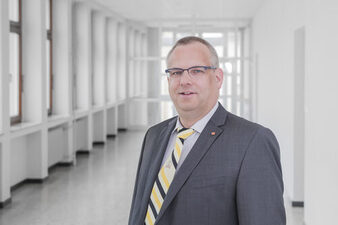About the project
The transition to electromobility represents a significant upheaval in the development of mobility. Automotive suppliers from Germany - especially from North Rhine-Westphalia - are playing a major role in this. Completely new, innovative vehicle concepts and solutions are being developed here, which in turn are creating new system integrators through reconfigured supply chains. This flexibility is made possible by the digital transformation and Industry 4.0. At the same time, this results in a high degree of complexity in terms of development and production. A modern engineering approach is needed to master this complexity. Standard-compliant product development that is distributed across several partners and at the same time ensures quality is a key element for all those involved in the development process. This requires the creation of open standards and shared tools. In order to remain competitive in a global environment and bring new products to market, a number of challenges need to be solved that individual companies or research institutions cannot solve alone. These include distributed product development and quality assurance with ever shorter development cycles.
With the aim of simplifying the development, integration and verification of complex products in the field of electromobility, a modular experimental vehicle is being designed in the project. This experimental vehicle should enable both the compatibility and communication of electrical components from different manufacturers in different performance classes. In order to do justice to the increasing complexity of product development, the project follows the methodical approach of model-based systems engineering. To this end, digital twins are generated from real mechatronic systems of the electric drive. However, the real objects and processes are not only digitally mapped, but the concept of the digital twin generates a communication flow of data and information between real and virtual objects and processes. The individual simulation models can be used to create an overall simulation that enables virtual configuration, verification and coordination of the overall design of the drivetrain and the control system using simple means.
A modular electromobility platform has already been set up in the previous project, which also supports the validation and verification of electromobility components in the development process of model-based systems engineering. In the combination of experimental vehicle and electric mobility platform, the purely virtual testing of the electric drive can be expanded to include X-in-the-loop. The digital twins can be used for analysis and optimization on the one hand and for developing new products on the other.
This should enable the design of a fully modular experimental vehicle with a battery-electric powertrain and a powertrain based on fuel cell technology.
based on fuel cell technology. The fuel cell technology will not only be generated as a virtual image, but will also be
also built in the real world, tested and integrated into the OMEx DriveTrain platform as an alternative to battery-electric energy storage.
The system will also be used for training, teaching and as a demonstration platform for trade fair appearances, for example.
Our main topics
- Design of a modular vehicle body with drivetrain
- Practical application of MBSE
- Definition of simulation models for mapping digital twins
- Generation of digital twins of the drive components
- Real extension of the OMEx-DriveTrain platform with fuel cell technology
- Hybrid testing, data acquisition and analysis with X-in-the-Loop
- Training documents, tutorials and examples as well as demos as online material
Funding code
Bochum University of Applied Sciences: 13FH0E63IA
Fachhochschule Dortmund: 13FH0E61IA
Westphalian University of Applied Sciences: 13FH0E62IA
Cooperation/project partners
- Institute for Electromobility (Bochum University of Applied Sciences)
- Institute for the Digital Transformation of Application and Living Domains (IDiAL) (Dortmund University of Applied Sciences and Arts)
- Westphalian University of Applied Sciences

